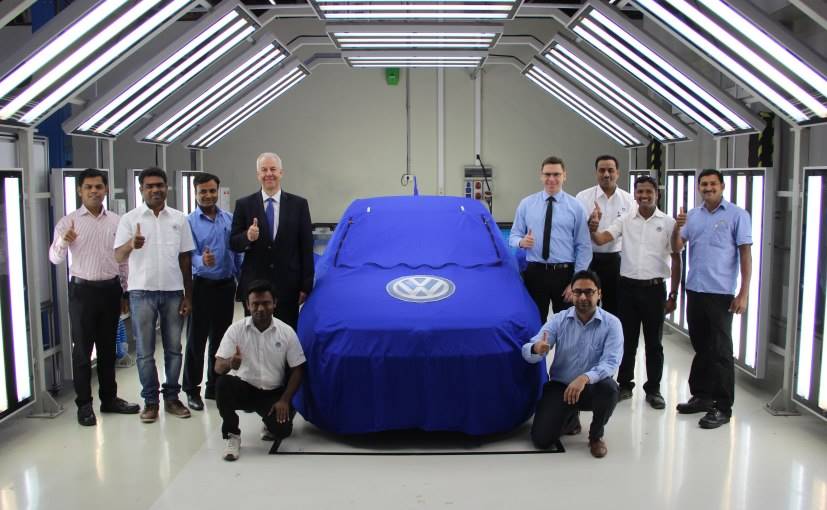Now Reading: Tesla accused of paying $5 per hour to foreign labours while $52 to American counterparts to build its US factories
-
01
Tesla accused of paying $5 per hour to foreign labours while $52 to American counterparts to build its US factories
Tesla accused of paying $5 per hour to foreign labours while $52 to American counterparts to build its US factories

A study by The Mercury News has actually wrote about the Tesla‘s utilization of imported foreign labor to construct its Silicon Valley factories. The post explains how a German business contracted by the automaker to broaden its centers exploited the visa system to bring in workers from Eastern Europe. These workers were reportedly paid just $5 an hour while American counterparts made $52 per hour. Responding to the article on Twitter, Tesla CEO Elon Musk stated: “Only heard about this today. Sounds like the wrong thing happened on many levels. Will investigate and make it right.”
The Mercury News article concentrates on the story of one Slovenian electrical expert, Gregor Lesnik, who was employed by contractor Eisenmann to equip a Tesla paint store in March last year. Lesnik suffered various injuries– including two damaged legs– after falling 3 stories at work. He was among 140 foreign workers employed indirectly by Tesla and admitted into the US under nonimmigrant visas for tourist and business (called B1/B2s). His visa suggested he would be monitoring other employees, however rather, he performed hands-on labor clearly not covered by the B1/B2.
Lesnik is now taking legal action against the employers for unspecified damages, notes The Mercury News, with his claim asserting that the companies breached both wage and employment laws. Lesnik told that he regularly worked 10 hours a day for 6 days a week and got no overtime pay. Other foreign laborers interviewed by The Mercury News reported the same, however stated they enjoyed with the work. In the past, other Silicon Valley companies have actually been fined by the Department of Labor for comparable working violations.
Tesla, the German specialist Eisenmann, and a Slovenian sub-contractor called Vuzem have all rejected responsibility for Lesnik’s injuries. Tesla tells that it had nothing to do with Lesnik’s agreement, and stated in a declaration: “Tesla sometimes brings in third party general contractors to do short-term construction […] In these situations, Tesla enters into contractual agreements with its general contractors, which allow them to select the resources they need for the job while also requiring them to hire and pay their workers appropriately.”
Stay Informed With the Latest & Most Important News
Previous Post
Next Post
-
![2026 Toyota Hilux EV: A Powerful Truck with Silent Torque]() 012026 Toyota Hilux EV: A Powerful Truck with Silent Torque
012026 Toyota Hilux EV: A Powerful Truck with Silent Torque -
![2027 Mercedes-Benz S-Class Debuts with V8 Engine [Photo Gallery]]() 022027 Mercedes-Benz S-Class Debuts with V8 Engine [Photo Gallery]
022027 Mercedes-Benz S-Class Debuts with V8 Engine [Photo Gallery] -
![The Financial Benefits of Corporate Fuel Cards for Fleet Management]() 03The Financial Benefits of Corporate Fuel Cards for Fleet Management
03The Financial Benefits of Corporate Fuel Cards for Fleet Management -
![What Are the Most Reliable Jaguar F‑Pace Parts to Maintain SUV Safety and Comfort?]() 04What Are the Most Reliable Jaguar F‑Pace Parts to Maintain SUV Safety and Comfort?
04What Are the Most Reliable Jaguar F‑Pace Parts to Maintain SUV Safety and Comfort? -
![Performance Toyota Hilux Clutch Kits: Are They Worth the Investment?]() 05Performance Toyota Hilux Clutch Kits: Are They Worth the Investment?
05Performance Toyota Hilux Clutch Kits: Are They Worth the Investment? -
![Spy Shots: 2027 Mitsubishi Pajero Spotted in Testing Ahead of Possible U.S. Return]() 06Spy Shots: 2027 Mitsubishi Pajero Spotted in Testing Ahead of Possible U.S. Return
06Spy Shots: 2027 Mitsubishi Pajero Spotted in Testing Ahead of Possible U.S. Return -
![What Is the Cheapest Ford Truck? A Guide to Affordable Ford Pickup Options]() 07What Is the Cheapest Ford Truck? A Guide to Affordable Ford Pickup Options
07What Is the Cheapest Ford Truck? A Guide to Affordable Ford Pickup Options

![2027 Mercedes-Benz S-Class Debuts with V8 Engine [Photo Gallery]](https://speedlux.com/wp-content/uploads/2026/01/2027-Mercedes-Benz-S-Class-33-700x394.jpg)





















































